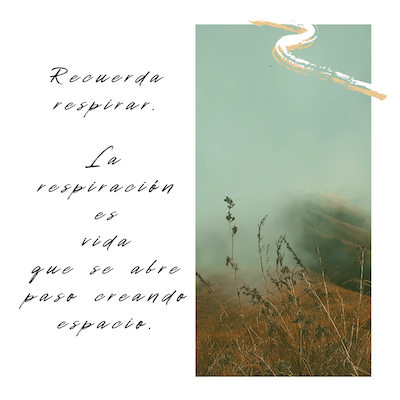Connection to ourselves and others. Connection to the planet we are inhabiting. Connection to the language we speak.
Slowing down and paying attention with all our senses, it is, for me, the key to have a successful learning experience. And I am not the only one who thinks this way. My friend and colleague Jessica Tefenkgi Ruelle, French Teacher and Mindfulness coach at French Sunny Side, has kindly accepted my invitation to talk about mindfulness in language learning.
Make yourself comfortable, take a deep breath and read what Jessica has to say
Learning a language in a modern world
In our modern, capitalist and fast-paced society, we are constantly pressurized to focus on the results we must achieve, the deadlines we must meet, the unrealistic expectations we must fulfill and the optimal life balance we must keep despite everything.
Yet, the load of information that we receive daily is phenomenal. By depriving us from our freedom to choose how to use our attention, it prevents us from living the life we desire. We are hyper-connected and yet we fail to feel the deep connection with other human beings. We don’t have time to think. We have forgotten how to listen to ourselves, how to connect with our hearts and intuitions. We have forgotten how to breathe.
Sadly, in a world that tells us what to do, we have forgotten how to be.
As a result, we are stressed, frustrated, burned out. We don’t have a minute to ourselves. There are so many things that we would love to do, like learning languages.
But we lack time, we lack focus, and we believe that what we lack is motivation and discipline. So we seek solutions, new methods that promise fast and easy results. Because that’s what we have learned to value: the results.
We’ve forgotten that what makes those results both gratiflying and inevitable is concentrating on the joy of the process.
You are probably thinking that you can’t really change the expectations of your boss, let alone of a whole society. But what if you started by what you do in your free time? What if you didn’t treat your leisure in the same way you treat a job? What if you connected to the pleasure of learning a language instead of a performance? What if it became an outlet for your freedom, your creative expression, a special place to defuse the stress and infuse your life with mindfulness and self-care ?
Languages and Mindfulness: a question of connection
Learning one or multiple foreign languages is a beautiful thing to do. It is one of the most meaningful hobbies that you can adopt. Just like art, learning another language gives you an opportunity to connect. Connect to other people, other cultures, other ways to perceive life. Also connect to other parts of yourself, as you recognize the world as a reflection of your own nature.
Similarly, living a mindful life allows us to see the interconnectedness of all things. When we meditate, we don’t do it only for ourselves, withdrawn from society.
We do it for a better relationship to the world and to the people in it. We create connections. Different perspectives. Radical acceptance. We develop tolerance, and we grow more resilient, more patient, more grateful.
When we are mindful, we remember.
Remembering
Remember how to regain your attention
What is our most precious resource? Hint: it isn’t money.
It’s not even our time. It’s our energy. And the way we spend our energy will be determined by the way we manage our attention.
Yet, our attention is constantly being called in so many directions, by so many distractions.

Technology
Not easy to focus on your journaling in French when your phone keeps beeping, or to watch your episode of La casa de las flores on Netflix when emails keep coming in.
Social media and technology make it harder to stay concentrated. Good news though: this is a problem you can easily manage.
Simply turn off your notifications on all your devices.
We are often resistant to this idea because we fear we will miss out on “what’s going on in the world”. Ironically, if every minute of attention that was “stolen” from us was actual money, we would be way more careful. Even if there is always the possibility of making more money, which is never true for time.
Although our modern devices pose a challenge in terms of managing our attention and time, an even bigger challenge is managing our thoughts.
Thoughts
Our thoughts wander, and we wander with them. Experts say that our mind processes between 60,000 and 80,000 thoughts a day. Imagine receiving 2,500 notifications per hour!!
But the question is: How many of them are actually relevant in that moment?
And when it comes to learning languages: How many times are you distracted by them when it’s your time to study or practice ? How much more valuable would your learning time be if you could select the thoughts that are helpful and let go of the unimportant ones?
That’s where mindfulness comes in.
Train your mind with meditation
If you’re like me, you don’t have much time to dedicate to your languages.
Let me reassure you: that is completely fine! Like with all good things, it’s not about the quantity, it’s about the quality.
If you spend 15 to 20 minutes mindfully working on your language (as in not carried away by thoughts, judgments and distractions), you will reach far better results than by sitting 3 hours in a classroom half listening to the teacher and half daydreaming of your next holiday in Cadiz, or thinking about your to-do and to fear-list.
However, whereas just a button on your phone can eradicate the technological distractions, we can’t really control when thoughts arise. You can try and you will most likely fail and conclude that meditation isn’t for you.
But that’s not what meditation is.
Meditation is developing our attention muscle. It’s noticing the thoughts that arise, and learn not to engage with them in order to keep our focus where we choose it to be: the breath, the physical sensations, but also the people we listen to, the food we eat… Any action can become a meditation.
Even learning languages.
This is really a super power that anyone can develop. When we are in charge of our own focus of attention, we regain full power of our mind, and of our life.
How to do
- Just start by focusing on your breath of a few minutes and count to ten: 1 when you breathe in, 2 when you breathe out, and so on. When a thought appears, notice it, let it go (Thank you, but I’ll think about you later) and go back to your counting of the breath, as many times as necessary.
- When you are learning your languages, notice how you feel and connect to your breath. In the same way, when thoughts occur, simply notice them (Oh, a thought, I don’t need you right now) and go back to your learning activity.
It doesn’t matter how many times you need to do it. What matters is that you will become more and more able to catch yourself wandering with your thoughts and bring yourself back in full presence, ready to connect with the joy of learning.
2. Remember to trust
How many times have we, language teachers, heard “French is so hard. Spanish is so hard. Learning languages is so difficult.”. I’m not saying it is easy, but the more we focus on how difficult something is, the more it will be. Especially if we keep focusing on the results, or rather… the lack of results.
Let me ask you a question: Why do we breathe?
Do we ever focus on how well or how badly we breathe? Do we ever focus on how much oxygen we are efficiently bringing to our lungs and organs? When you’re at the bottom of an exhale, do you ever worry that there won’t be air available for you when you’ll inhale? Do you ever worry that you might breathe too much? or not enough? Do you ever fear that you might just not be good at breathing, that it’s not your thing?
We don’t ask all those questions because we know our lungs are made to breathe. We trust the process. We know that breathing is inevitable until we are no longer alive.
Well, learning is what our brain is made for.
Progress is a universal human value. We are all motivated to live because of the idea that we can become better, make things better, understand better, live a better life.
And the thing is, we grow constantly. We learn constantly. And we make progress constantly. Especially when we know how. When we’ve understood our own minds, our own processes and taken advantage of our individual unique ways to function and to acquire a language. With the right environment, the right material at the right level, that makes us feel connected to our joy of learning, there’s really nothing to worry about.
Just as you trust your body that it will breathe, trust your mind that it will learn.
3. Remember the joy of learning
Have you ever observed a young child that is left undisturbed by adult control? They play for hours. It’s a very serious thing because this is how they learn: with an unstoppable curiosity about how the world works.
Somehow when we grow up, learning becomes synonymous with working, suffering, struggling. But deep down, we all have the same playfulness, the same eagerness to discover new things. We simply need to reconnect with those pleasant feelings of learning by first disconnecting from unrealistic expectations and fears that having to make an effort means not being good enough.
Learn effortlessly?
When we grow up with a fixed mindset, we grow up with the false assumption that anything we’re any good at should come effortlessly to us (Grow your mindset, change your destiny). Additionally, in our modern society, we are used to comfort being the norm and we simply don’t know how to live with discomfort.
There’s really no way around it: progress happens outside of the comfort zone and it does require effort. But there’s a duality in everything: pleasure and pain, boredom and joy, effort and ease and the sooner we accept it, the faster we can hop on the train of conscious learning.
No matter what your ability is, effort is what ignites that ability and turns it into accomplishments.
Carol Dweck, Mindset
An effort worth making
Nobody likes to suffer. Our human minds have become experts to avoid pain and effort, by using strategies such as excuses, procrastination, inner critics, etc. They are all tricks of the mind, really, and we can avoid those traps by putting in place counter-strategies. But there is one thing that will always win: make the effort justified. If it is something you really want, something you value, you will endure the negative aspects of an experience much better.
You think I’m exaggerating? Think of the last time you got a tattoo, or gave birth. Or even just went to the dentist.
Hopefully, learning a language isn’t as painful as that, but you get the idea. Once you connect to what learning this language represent for you, you will find it much easier to beat any excuse that your mind makes up, and to even find ease in the discomfort.
How to do
Take a few deep breaths. Think of yourself learning the language. Hearing it. Speaking it. Reading it. Feeling it. What are your sensations and feelings? Think of yourself speaking that language with other people. How does it make you feel? Connect to your values as a human being. How are they connected to the activity of learning languages?
Follow the joy
Learning a language goes far deeper than learning its grammar and vocabulary. This is not to say that they are unimportant, of course. They articulate the language, and understanding how they work is understanding how to make sense in that language.
But don’t mistake the forest for the trees. Be mindful that textbooks and apps are sure useful, but they are only tools. Plus I find it quite hard to connect to the soul of a language like that.
Instead, just like children play with toys to make sense of their environment, play with the language to understand yourself and the world around you.
What are the learning activities that you are attracted towards? Don’t think with your mind, we aren’t interested in logic here. We’re interested in your intuition, your instinct. What do you really want to do in that language you’re learning? Do you want to dance, sing in your living room or in public? Journal, write words, draw, play video games? Learn about personal development? Do that. It’s unconventional? It goes against everything your old French teacher told you when you were in high school? Good. Do it anyways.
Just like in love stories, the key for a long-term, deep and meaningful relationship with a language is to observe it move and dance on the tongues of the speakers. On the hips of the dancers. Watch the words connect and intertwine in poetry, in novels, in songs and stories. Accept it, radically, as it is. Let it reach your heart. Let it grow there. Allow it to expand your own soul. And then watch yourself grow, a little different than who you were before. A bit more wiser.
A bit closer to your truth.

Guest Author (www.frenchsunnyside.com)
I’m Jessica Tefenkgi Ruelle. I’m an online French teacher and a Mindful Life Coach. I’m the founder of French SunnySide, where I blend French acquisition with mindfulness and self-awareness. I help intermediate learners find their authentic voice in French. Learn more about my work on my website www.frenchsunnyside.com, and get my free 18 pages PDF: The Mindful French Learner’s Guide


